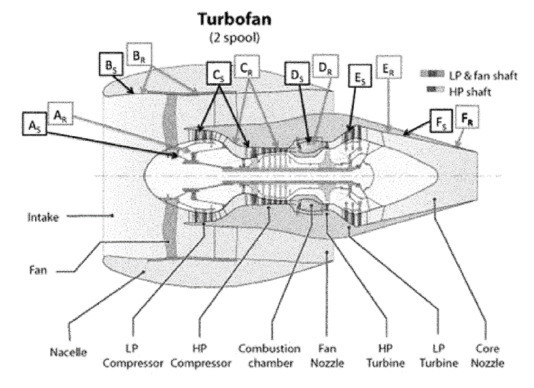Real-Time In-Situ Health Monitoring of Gas-Turbine Engines via Radio Frequency Probes
Tech ID: 16-005
Inventors: Dr. Thomas Pratt, Jeffrey Mueller, Robert Kossler, Neil Dodson, Dr. Scott Morris
Date added: January 12, 2021
Overview
A novel RF-based technology for real-time engine health monitoring for turbomachinery.
Technology Summary
Turbomachinery is an important class of machines that operate by harnessing energy from fluids. The most common forms of turbomachinery are engines, pumps, air compression, and fans and play valuable roles in industries such as aircraft engines, power generation, oil, and gas. Modern turbomachinery is designed to perform in a number of difficult operating requirements of close mechanical tolerances, high temperatures, high pressures, high mechanical stress, and harsh operating environments. Improved monitoring of turbomachinery subject to these harsh conditions has potential to greatly improve operational efficiency and equipment lifetime for every industry relying on turbomachinery applications.

Researchers at the University of Notre Dame have recently developed a novel method employing RF signals from an in-situ sensor to illuminate the cavities of a rotating machine such as turbine, compressor or other turbomachinery. Such use of RF signals allows the reflections to be monitored to detect shaft unbalance, bearing fatigue, blade deformation and vibration, stall onset, and more. By monitoring rotating machinery in real-time and in-situ, precursors of undesired occurrences, including stalls, surges, and catastrophic failures can be detected and acted upon to avert system damage. This diagnostic technology has the potential to increase efficiencies, lower operating costs, and reduce maintenance downtime.
Market Advantages
• More efficient turbomachinery
• Lower operating costs
• Reduced maintenance downtime
Intellectual Property
US Patent 10,280,787
Technology Readiness Status
TRL 3 – Experimental Proof of Concept
Contact
Richard Cox
rcox4@nd.edu
574.631.5158